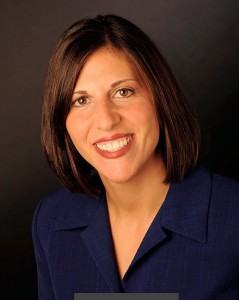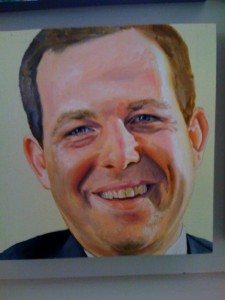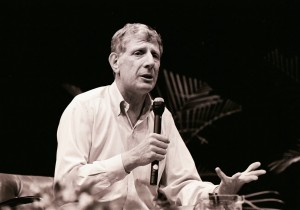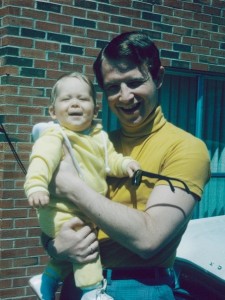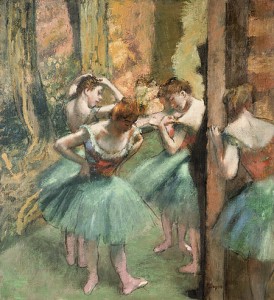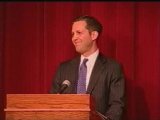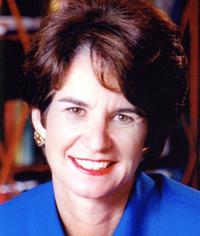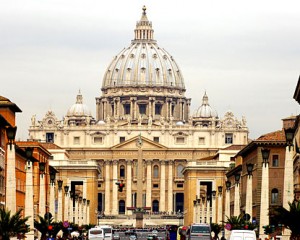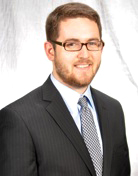There’s yet another casualty in the Obama/Liberal/Democratic/Socialist War on Christmas: The National Christmas Tree Has Died. Read about the tragedy: [The Daily Beast]
|
I remember when synagogue was a safe place. I never worried about anyone bringing in a gun or explosives. I never heard the words “terrorist attack,” unless of course, it pertained to Israel. But, not in this country. Not in my home. Not in my synagogue, my school, nowhere within the community I knew. All my children will ever know, is that we need a police presence to “make sure everything is ok and that everyone is safe.” At least, that is what I tell them. I don’t tell them about the ignorant people who hate us simply because we are Jewish. I don’t tell them about those who distort their own religious beliefs in an effort to destroy others who aren’t like them. I don’t tell them about the evil that persists in the world. I only tell them that “we are safe.” Of course, safety is relative. They have asked me, “Why is our country at war?” “Who was Osama bin Laden?” “Why do they hate us?” I do not lie to them. I answer in age-appropriate ways, sharing just enough to satisfy their need to know. What can I really say other than, “There is no need to worry.” And, yet, I do tell them to be cautious of strangers and not to leave their brothers alone when they visit a public restroom or run with their friends in the neighborhood. I walk that fine line, trying to prepare them for the realities of life without terrifying them. But, we can’t be prepared for everything. I know we all experience tragedy. For me, it was losing my mother to cancer way before her time. And then following her death, my father was so terrified of being alone that he made unwise, disturbing choices that separated him from his family, resulting in my losing him, too. A father I was once very close to. It is difficult learning to mourn a father who is still living. I know that everyone’s life experiences are different. They challenge us, they strengthen us. They shape who we are and who we will become. For my children, it will be no different. Nor do I want to protect them from that journey. I have hope and faith that my husband and I are building a healthy foundation upon which they will make their choices and live their lives. And, yet, I can’t help but worry about the tragedies they will face and hope that it will not tarnish them, nor spoil them to the beauty in the world. I think about my children’s future. Their children’s future. And, I’m scared. I worry. What will their world look like? Will it be safer than yesterday, or worse than today? I fear for the state of the world, and I’m concerned for my children’s personal well-being. Only one thing is certain. All my children will ever know is that I love them. They are my priority. In a world with such uncertainty, this one thing is certain. It is everlasting. I tell them that my number one job, my privilege, is to take care of them and keep them safe. God willing, I will succeed. God willing, we will all succeed in making tomorrow better, and safer than today. I’m excited to share with you a piece I wrote that landed on the front page of today’s The Times of Israel. It’s a book review of Peter Beinart’s The Crisis of Zionism. My piece is entitled “The Crisis of Peter Beinart.” While I want you to click here to read the article, I will offer two SPOILER ALERTS: 1. As the movie reviewers from In Living Color would say: “Hated it!” 2. This may be the first book review in history to quote Benjamin Netanyahu, Fredo Corleone, Emily Bronte, Three Dog Night, and Jerry McGuire. An excerpt:
JTA, the leading international Jewish news agency featured a piece written by the RP last week in which he lambasted his fellow Jonathan Miller (the British playwright) for signing what The RP termed an anti-Semitic letter.
Nor is it a critique of Jonathan Miller, the News Corp executive, Jonathan Miller, the Birmingham Rabbi, Johnathan Miller, the Iran-Contra felon, or even Jonathan Miller whom God called to run for Congress in West Virginia. Rather, my deep disappointment is directed toward the most famous Jonathan Miller. For those of you who are under the age of 50 and have never tried to Google me, THE Jonathan Miller is “is a British theatre and opera director, actor, author, television presenter, humorist and sculptor,” best known for being a frequent guest in the early 1980s on The Dick Cavett Show.
Miller co-signed a letter (along with three dozen other British actors, directors, and writers, including two-time Oscar winner Emma Thompson), asking Shakespeare’s Globe Theater in London to withdraw its invitation to an Israeli theater company “so that the festival is not complicit with human rights violations and the illegal colonisation of occupied land.” A charge of anti-Semitism, of course, is quite severe, especially concerning a fellow Jonathan Miller. And I’m not one to consider every pronouncement against Israeli policy anti-Semitic or even anti-Zionist. Furthermore, I strongly support a two-state solution in the Middle East that would require Israel to return most of the West Bank lands it captured in its defensive struggle for existential survival during 1967’s Six Day War. I believe that criticism of the occupation, and particularly of many of the Jewish settlements in these territories, can be — in the proper context — a profoundly Zionist statement. But this is far from the proper context. Read the rest of… On this day in which we remember the tragic assassination of Martin Luther King, Jr., we re-run this piece — in which the RP honored King, his father, and contributing RP Kathleen Kennedy Townsend’s father — that first appeared at The Recovering Politician on April 4, 2011. Today — as on every April 4 — as the nation commemorates the anniversary of one of the worst days in our history; as some of us celebrate the anniversary of the greatest speech of the 20th Century; my mind is on my father. And my memory focuses on a winter day in the mid 1970s, sitting shotgun in his tiny, tinny, navy blue Pinto. I can still remember my father’s smile that day. He didn’t smile that often. His usual expression was somber, serious—squinting toward some imperceptible horizon. He was famously perpetually lost in thought: an all-consuming inner debate, an hourly wrestling match between intellect and emotion. When he did occasion a smile, it was almost always of the taut, pursed “Nice to see you” variety. But on occasion, his lips would part wide, his green eyes would dance in an energetic mix of chutzpah and child-like glee. Usually, it was because of something my sister or I had said or done. But this day, this was a smile of self-contented pride. Through the smoky haze of my breath floating in the cold, dense air, I could see my father beaming from the driver’s seat, pointing at the AM radio, whispering words of deep satisfaction with a slow and steady nod of his head and that unfamiliar wide-open smile: “That’s my line…Yep, I wrote that one too…They’re using all my best ones.” He preempted my typically hyper-curious question-and-answer session with a way-out-of-character boast: The new mayor had asked him—my dad!—to help pen his first, inaugural address. And my hero had drafted all of the lines that the radio was replaying.
Now, for the first time, I realized that my father was in the middle of the action. And I was so damn proud. – – – My dad’s passion for words struck me most clearly when I prepared his eulogy. For the past two years of his illness, I’d finally become acquainted with the real Robert Miller, stripped down of the mythology, taken off my childhood pedestal. And I was able to love the real human being more genuinely than ever before. The eulogy would be my final payment in return for his decades of one-sided devotion: Using the craft he had lovingly and laboriously helped me develop, I would weave prose and poetry, the Bible and Shakespeare, anecdotes and memories, to honor my fallen hero. In his final weeks of consciousness, he turned down my offer to share the speech with him. I will never know whether that was due to his refusal to acknowledge the inevitable, or his final act of passing the torch: The student was now the author. While the final draft reflected many varied influences, ranging from the Rabbis to the Boss (Springsteen), the words were my own. Except for one passage in which I quoted my father’s favorite memorial tribute: read by Senator Edward Kennedy at his brother, Robert’s funeral:
Read the rest of… What a night! Or should I say what a morning? The girls and I woke up at 3AM here in Florence, Italy to watch our beloved University of Kentucky Wildcats capture their eighth NCAA national basketball championship. Sheer euphoria. I’ve tried for a few years to put into words what the Wildcats mean to me, as well as their profound impact on my home state. It really is more than a kids’ game — Kentucky basketball delivers sound public policy. For my fellow members of the Big Blue Nation; for the uninitiated who don’t understand what the fuss is all about; and for the cynics who decry the professionalization of amateur sport, I offer my latest column for The Huffington Post: “Why Kentucky Basketball Matters.” Enjoy:
Click here to read my full column in The Huffington Post.
New Ways Ministry has a critical mission, since changing the Church will help those who suffer from ill treatment not only here in the United States but around the world, where the Church has so much clout. The Church has millions of members in Africa and South America, where being gay or lesbian can lead to a death sentence. Worse, the Church’s own teaching encourages bigotry and harm. Just last year, my father’s memorial, the Robert F. Kennedy Center for Justice and Human Rights, gave its human rights award to Frank Mugisha, a gay activist in Uganda whose good friend had just been brutally killed in his own home. American missionaries have encouraged the discrimination Mugisha suffers. Refuting their religious arguments is critical, and so is making a moral and religious case for gays. What we need is a transformation of hearts and minds, not merely a change of laws.
The fight for the dignity of the LGBT community is a fight for the soul of today’s Church. Some conservatives see the hierarchy’s current, traditional teaching on sex as the Church’s defining position. They don’t really like to talk about, or even be reminded of, the Church’s teachings on immigration, or protection of the environment, or the greed that produces financial meltdowns, all of which they would find distastefully liberal. Read the rest of… For centuries, Jews have looked at world events and/or world leaders and have wondered: Is it good for the Jews? So much so, it’s become a running joke within the tribe. JTA, the leading international Jewish news agency, decided to test this question on the issue of the week: The NCAA’s Final Four,and specifically, the semifinal meeting of two longtime intrastate archrivals, the University of Kentucky Wildcats and the University of Louisville Cardinals. Taking the side of all that is good and right and holy (the Wildcats) is the RP himself. On the dark, red side (the Cardinals) is the RP’s great friend, Marie Abrams, who serves on the board of the University of Louisville, and has been a local and national leader of Jewish organizations for decades, including serving as former national chair of the Jewish Council for Public Affairs. Listen to the podcast here for the fireworks and fun:
But I love church. Church has been part of my life since before I was born. I can’t think of a time when I missed church three Sundays in a row—church is something that I’ve always been expected to attend, and once I reached a certain age, it became something that I felt worthwhile to attend of my own volition. I love church because it’s a place to come together as similarly valued people and work through each of our struggles with the holy, and discern how God wants us to work in the world in which we live. Up until about 6 months ago, I’ve attended conservative to moderate Baptist churches who were certainly less fundamentalist than what “Baptist” currently connotes, but who were (and continue to be) considerably less liberal than me. Six months ago I began attending Highland Baptist Church, and for the first time in my life, my faith has been challenged from the left. I’ve been left wondering more than once “is this stance too liberal for me?” That answer has not yet been ‘yes’; but I am glad to be in a place that necessitates the question. Prior to Highland, I attended two fantastic churches which I love dearly. They are the places where I found God and where I began my life-long struggle to comprehend my place in God’s world. In infinite ways, those churches have helped me along to become the person that I am. However, when I made the decision to go somewhere else six month ago, there was a specific reason Read the rest of… |
| ||
| Copyright © 2026 The Recovering Politician - All Rights Reserved | |||





